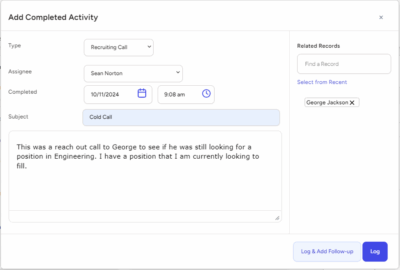You found the perfect candidate, and your client wants to hire them. So you call the candidate and offer them the job. Then, the worst thing happens: the candidate refuses the job offer.
Whenever you offer a job to a candidate, you hope they want the job as much as your client wants to hire them. But sometimes, a candidate has a change of heart and decides they are no longer interested. A candidate declining a job offer can be painful, but there are ways to move on.
What to do when a candidate refuses a job offer
If a candidate declines a job offer from a client, use the following tips to handle the situation.
Respond graciously
It’s frustrating when a candidate turns down a job offer. But no matter how frustrated you are, you must respond with grace. You do have to run a reputable business, after all. If you respond angrily, you might receive bad reviews.
Whether you are communicating by phone or email, express your disappointment. But, do not try to send the candidate on a guilt trip.
You might say something like, “Thank you for telling me your decision. My client is certainly disappointed that you went a different direction.”
You might also wish the candidate well in their other pursuits. For example, you might say, “Good luck in whatever you do next.” Or, you can try to plant seeds for a further relationship with this candidate. You might say something like, “Would you be interested in being considered for other positions I’m filling?”
Find out why the candidate is declining a job offer
If the candidate doesn’t give you a reason for declining the job offer, you should ask for one. This information might help you successfully place the candidate in the future, so be sure to record the reason in your recruitment business software.
Candidates often reject client job offers for common reasons. According to the Top Echelon 2018 State of the Industry report, the following are the top reasons candidates turn down offers:
- 28.8%: The salary is too low for the position
- 23.0%: Other offers were better
- 22.4%: The client took too long to make an offer
Depending on the candidate’s reason for turning down the job, your client might be able to craft a better offer that will hook the candidate. For example, if the candidate turned down the job because the salary was too low, the client might try offering more money.
Don’t try to force the candidate to accept the job. If the candidate takes the job but isn’t truly happy, your client won’t be happy either. And if your client isn’t happy, you might not receive future work. Work with your client to strike a balance in the offer.
Don’t throw out the candidate
Just because a candidate declines the job offer, you shouldn’t completely discount the candidate. Don’t delete their profile from your recruiting software out of frustration and anger.
The candidate didn’t want this job, but they might be interested in future jobs you need to fill. Save as much information as possible about the candidate.
Move on
When one candidate declines an offer, you need to move on to other candidates.
Find out if your client wants to offer the job to another candidate you presented. If so, you can extend the offer to that candidate.
If your client doesn’t want to offer the job to any of the remaining candidates, you must focus on finding more candidates. Even though you essentially have to start the search process over, you should now have a better idea of whom to look for. If you have trouble finding more qualified candidates, you might need to broaden your sources of recruitment.
Examine candidate experience
If you notice that many of the candidates you work with are turning down jobs, you need to find out why.
Examine which candidates are walking away. If candidates are declining jobs from a particular client, take a look at how that client interacts with candidates. Something might happen during the interview stage that turns candidates away. Or, candidates might not like something in the job offers.
If candidates are turning down jobs across the board, you might need to take a look at your own recruiting processes. Candidates might be turned away by you and how you handle interactions.
Once you identify where the problems are, make changes. Work with your client to help them become more desirable. And, adjust your business to provide better service to candidates.
Keep adjusting until you have a near-perfect offer-acceptance ratio.









